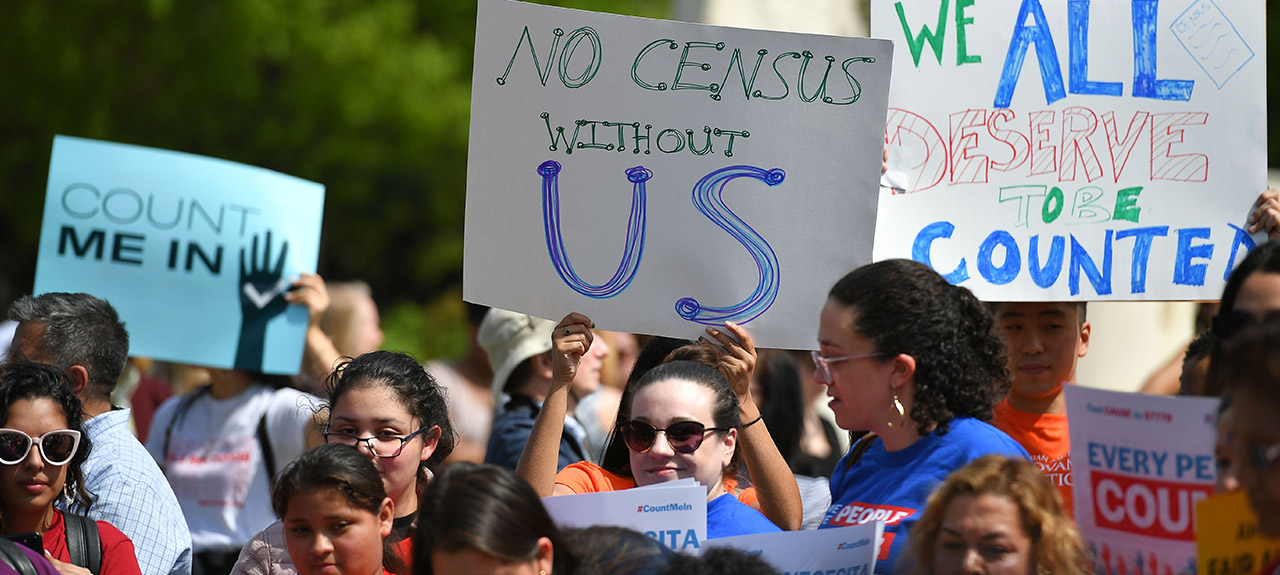Ensuring that all community members are adequately represented in population data is integral to informing how government resources get allocated across critical issues in areas where they’re needed most and how legislative seats are apportioned in the U.S. House of Representatives.
The significance of the Decennial Census guided Seattle Foundation’s decision to play a leadership role in supporting the 2020 Census and ensuring a fair and accurate count.
“The latest census data means a great deal to our region as it is used to inform a number of decisions related how resources are allocated by public and private entities, and how political representation is divided,” said Bao-Tram Do, former Seattle Foundation Program Officer.
Historically, a barrier to a fair and accurate count has been mistrust of institutions. Thus, civic engagement and outreach efforts from trusted sources are fundamental in reaching undercounted communities. Kamau Chege is the Executive Director of Washington Community Alliance. He believes that individuals living in more affluent areas feel comfortable filling out the form and are more widely represented in census data because they have faith in democratic institutions. For those with differing lived experiences, there’s a greater sense of mistrust, according to Chege.
“…The places where people are less likely to fill out the census are underserved communities that tend to be more rural or in more working-class neighborhoods and places that have been divested from, going back to the redlining of the mid-20th century,” Chege said. He continued to say that the only way to rectify this mindset is to make sure the government is responsive to counting working-class communities of color, in particular, and investing in them.
Achieving this ahead of the 2020 census was especially important knowing that there was a push to put barriers in place to dissuade certain people from participating in filling out the census itself.
“The 2020 census was a historic opportunity to reclaim democracy for all of us, in a moment where democracy was backsliding and working people of all races were losing trust in institutions that have failed them,” Chege said. “We felt it was important to reckon with the fact that the only place in our constitution that acknowledges people of color is the census clause that originally counted Black people as less than full human beings and excluded Native Americans altogether.”
Similarly, Do counted all the efforts that took place to encourage people to fill out the census as a win—particularly for grassroots and nonprofit leaders.
“It reflects a large effort that our grassroots and community-led organization fought for to make the census as accurate and equitable as possible despite numerous efforts to undermine the census count while it was underway.”
Although population growth in Washington State was not large enough to add a seat in the U.S. House of Representatives, a shift is occurring in King County. Washington state’s Office of Financial Management reported that census data helped secure more than $16 billion in funding from federal programs in FY2016, meaning that growth is happening at a fast enough rate to require more resources. The city of Kent’s population grew nearly 44% over the last decade, making it one of the top 10 fastest growing cities with at least 50,000 residents in the country. More broadly, the most recent census data shows that the United States is increasingly becoming more diverse as multiracial groups continue to grow in prominence. Because the U.S. Census Bureau tracks these statistics, local leaders can refer to the documentation to better understand the shifting dynamics of people living in their communities and respond accordingly.
“Having the latest 2020 Census data allows us to make fewer assumptions about our community and gain greater demographic insights such as racial, ethnic, and geographic make-up of our communities,” said Do. “Seattle Foundation will use the new 2020 Census information to be data-driven in our storytelling and decision-making process as it relates to stewarding philanthropic resources and amplifying community voice.”


